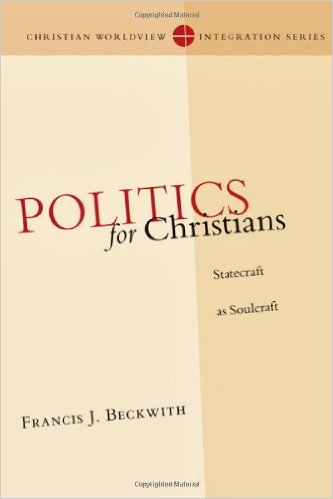
Beckwith starts the chapter by pointing out that political execution concerning its powers comes from worldviews that are never neutral. He then asks, “is the Bible a reliable means to make public policy: some Christians would affirm its use, while others would deny it for such activity.
Another issue raised is the Church/State tension and how Christian values are to be established when one is a democrat and the other is a republican. To answer these questions, Beckwith accentuates the need for us to know what politics is and why Christians should actively study and shape political discourse.
Almost every university, notes Beckwith, has a political science studies of sorts that studies the nuances of politics in areas of philosophy, history, theology, medicine, etc., within its’ sub-fields (Pgs.42-43). Thus, this book is a mere introduction to the subject.
Beckwith points out that Political Theory encompasses many philosophical questions about the nature of government, the individual, rights, democracy, liberty, equality, and the good. According to Locke, not only do natural rights exist, but the best form of government to protect these rights is the ‘the separation of powers’ as we have in the U.S (e.g., executive, legislative, and judicial) because unaccountable people with too much power lean toward despotism and rampant injustice. This form of government at least makes it possible to curb said abuse of power.
Moreover, assuming that Locke is correct about natural rights, then the purpose of liberty is to secure the public good for its’ citizens so that those who defraud, murder or steal from their neighbor are held accountable for such violations.
Beckwith explains that the fact that different forms of government exist, naturally leads to the study of Comparative Politics. This is where one nation’s policy is considered to whether or not it would be good for another nation to adopt (E.g., Denmark the first nation to legalize same sex marriage. How will this play out in the USA?). Here, philosophy, worldview analysis and statistics are used to arrive at some kind of resolution.
Beckwith astutely points out that the theories these sub-fields obtain never operate alone, but rather necessarily intersect each other because of the contribution each field affords to the other and thus our political understanding. Thus, for the responsible Christian citizen who wants to advance the good, the true and the beautiful, Beckwith insists that theology along with other disciplines must be studied in order to have a more robust political theory and application.
